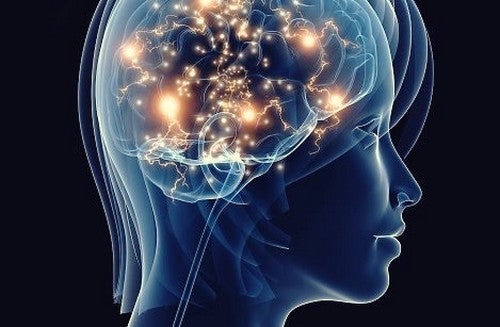Untreated depression, which becomes chronic and accompanies us for years like a gray shadow that obscures everything, ends up leaving a mark on our brains.
Recent studies indicate that the alteration caused by this psychological condition influences structures such as the prefrontal cortex, affecting our ability to make decisions, solve problems, think, etc.
- Neuroinflamation.
- Reduced oxygen supply to the brain.
- Changes in neurotransmitter production?Processes that accompany different disorders.
- Such as major depressive disorder.
- Can reduce the functionality of many of our brain structures.
- Even forming a neurodegenerative process.
However, these changes will begin to become apparent if a patient carries this psychological problem with them for 9 to 12 months.
Knowing this, we may ask ourselves: why don’t we treat our depressions, what prevents a person from seeking professional help to cope with their suffering?
It should be noted that there is no single answer to these questions; actually, sometimes the complexity of this mood disorder is not entirely defined.
Some people think it will never get better. His own illness acts like a shield and prevents him from seeking help. Other people resist treatment.
There are also those who have misconceptions about psychotherapy, those who do not trust or even those who dare not assume that they have a problem.
On the other hand, we cannot ignore those who lack the resources and social support to ask for help, living with an undated psychological disorder is woefully common and the effects of this reality can be immense.
“I don’t want to be safe from danger, I just want the courage to face them” – Marcel Proust-
Many of us know what depression is. Whether it’s because we’ve suffered in the past or today, or because a loved one has gone through this grueling universe at all levels.
We know its psychic effects, which involve physical and even social; However, what a large part of the population may not know is the effect it has on our brains.
An interesting study by Dr. Victor H. Perry, professor of neuropathology at the University of Southampton, United Kingdom, spoke of this curious and important fact.
People with major depressive disorder have been shown to have an increased risk of prolonging the condition for an extended period of time. Relapses are common, so we can have patients who have been dealing with this kind of serious reality for decades.
Persistent or untreated depression has a neurodegenerative effect. Let’s see more data below.
A study conducted by Dr. Dilara Ooksel of Istanbul University was able to demonstrate the change caused by a major depressive disorder in the brain for 3 years, in case she was not treated (or if there was no reaction to treatment).
The most striking consequence is the reduction in the size of several structures, such as:
These areas are directly related to our memory, the processing of our emotions and executive functions (problem solving, attention, planning, environmental receptivity, etc. ).
Untreated depression also has a biological effect: it elevates neuroinflamation. Jeff Meyer of the Center for Mental Health at the University of Toronto, Canada, surveyed 80 participants over 10 years.
Half of them had a major depressive disorder but had never been treated. The goal was to find out what effect it had on the brain.
This data is impressive. Studies such as that conducted by Dr. Tomohiko Shibata’s team at the University of Tokyo show that mood disorders, such as untreated depression, cause mild hypoxia.
In other words, a psychological condition such as a major depressive disorder maintained over time results in lower oxygenation of the brain.
Does something like this cause more fatigue, disorientation, concentration problems, migraine?The effect is evident and therefore hyperbaric oxygen chambers are already used to relieve symptoms.
As we can see, a major depressive disorder can certainly have a very detrimental effect on brain health.
The impact of the disease itself eventually alters the functionality of our brain, which certainly aggravates discomfort and adds cognitive problems and even increased resistance to treatments.
However, in recent years new techniques have emerged, it has been observed, for example, that transcranial (non-electroconvulsive) magnetic stimulation significantly improves the well-being of these patients.
Thus, magnetic pulses aimed at these problem areas improve biochemistry and connectivity. According to the experts, is that so? Restarting the brain Let’s hope for new and promising progress.

